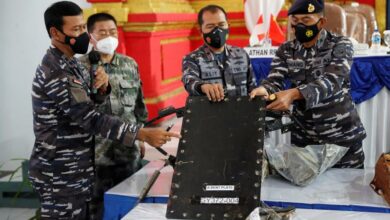Death toll rises to 100-plus in Sierra Leone tanker truck blast

Freetown, Nov 7 (EFE).- The death toll in the fuel truck explosion in Sierra Leone’s capital of Freetown rose on the weekend to 101, while more than 100 injured remain hospitalized, Mohamed Lamrane Bah, the communications director of the Sierra Leone Disaster Management Agency, told EFE.
“We lost (the lives of) more than 100 people in an instant and we’re still fighting for another 100 who are in the hospital,” Sierra Leone President Julius Maada Bio on Sunday told a crowd during his visit to the Wellington neighborhood on the outskirts of Freetown, where a truck collided with tanker truck carrying fuel, causing it to leak a large amount of fuel and ultimately explode.
“We’ve made every effort and I want to thank the medical personal all over the country,” said Bio, adding that they had provided free medical services to the hospitalized victims to “attend to their biomedical needs, their well-being and immediate psychosocial (welfare),” but he warned that, at present, not enough medical supplies were available.
In addition, Sierra Leone Health Minister Austin Demby told reporters that authorities had been in contact with the World Health Organization in Geneva and that they had high hopes that a huge shipment of medications and supplies would arrive in the country within the next 24 hours.
The accident motivated Bio to cancel a planned trip to Accra, Ghana, where he had been scheduled to travel on Sunday – after participating in the COP26 climate summit in Glasgow, Scotland – to attend an extraordinary summit of the Economic Community of West African States (CEDEAO) to discuss the recent coup d’etats in Mali and Guinea-Conakry.
Bio said that he went to the accident site to express his solidarity with the victims and their loved ones, as well as to learn firsthand the particulars of the tragedy, which also resulted in extensive material damage in the vicinity.
Upon his return from Glasgow on Saturday, Bio also visited with the victims of the explosion in capital hospitals and reiterated his condolences to the families of the dead.
“This is the worst that has happened to anyone,” he said, expressing his appreciation of their efforts to the National Disaster Management Agency and the National Security Office, as well as acknowledging the work done by Vice President Mohamed Juldeh Jalloh and his team since the explosion.
In a statement on Saturday, Mohammed Mukhier, the director for Africa for the International Federation of Red Cross and Red Crescent, said that the incident was “heartbreaking” for a country affected by other recent disasters, such as the landslides in summer 2017 that killed more than 1,000 people, and the 2014-2016 Ebola epidemic that killed some 4,000 in Sierra Leone alone.
Kpawuru E. T. Sandy, the secretary general for the Red Cross in Sierra Leone, said that “the main hospital is overflowing and the families are having difficulties identifying their burned or dead loved ones, since the bodies are very charred.”
An eyewitness to the blast, Mohamed Kamara, told EFE that the accident occurred at around 2000 GMT on Friday night, when the tanker went to supply fuel to a service station.
“Suddenly a trailer hit the tanker,” he said, adding that many people approached the site in a bid to collect the spilled fuel, but then it exploded.
“The tanker driver told them to drive away. The driver ran to save his life; all the motorcyclists who were near the place died,” he added.
Collecting spilled or spilling fuel from trucks that have crashed is a common practice in some countries in Africa, although tragically if the fuel catches fire under those conditions it often produces significantly more victims – who have flocked to the site now saturated with the fuel – than if the truck had simply blown up.
EFE isk/mrgz/pddp/bp





